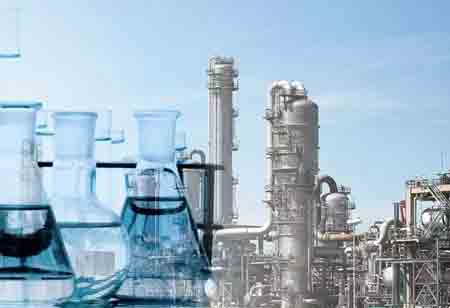Chemical Industry Review | Thursday, September 21, 2023
The intricate relationship between the chemical industry and public health underscores the importance of responsible practices, transparent communication, and collaboration.
FREMONT, CA: The chemical industry, a cornerstone of modern society, has far-reaching implications that extend beyond economic growth and technological advancement. Its products and processes play a significant role in shaping public health, with both positive contributions and challenges that warrant careful consideration. As the world grapples with health concerns ranging from environmental pollution to pharmaceutical innovations, the interplay between the chemical industry and public health is at the forefront of discussions aiming to strike a balance between progress and well-being.
Health Innovations Through Chemistry
The chemical industry has been instrumental in advancing health outcomes through innovations in pharmaceuticals and medical technologies. The development of life-saving drugs, vaccines, and medical devices has transformed the landscape of modern medicine, extending lifespans and improving the quality of life for countless individuals.
Pharmaceutical research and development, driven by chemical expertise, have yielded treatments for various diseases, including chronic conditions and infectious outbreaks. These innovations underline chemistry's pivotal role in healthcare and its potential to revolutionize how we address health challenges.
Environmental Concerns and Public Health
While the chemical industry's innovations have contributed to health advancements, its operations have also raised environmental concerns that can impact public health. Pollution, hazardous waste, and the release of toxic substances are challenges that require robust regulatory frameworks to ensure the safety of communities and ecosystems.
Efforts to mitigate environmental risks include adopting cleaner production methods, reducing waste, and adhering to stringent emissions standards. The industry's commitment to responsible practices is essential in safeguarding public health and minimizing the negative impacts of chemical processes.
Endocrine Disruptors and Health Effects
A particular area of concern within the chemical industry is the presence of endocrine-disrupting chemicals (EDCs). These substances can interfere with the body's hormonal systems and have been associated with various health effects, including developmental abnormalities, reproductive disorders, and certain cancers.
As awareness of EDCs grows, regulatory bodies are taking measures to assess and regulate the use of these chemicals. The chemical industry's collaboration with public health experts and regulatory agencies is crucial in addressing these concerns and ensuring the safety of consumers.
Balancing Benefits and Risks
The challenge lies in balancing the benefits of chemical innovations and their potential risks to public health. As new chemicals are developed, it is essential to conduct thorough risk assessments to identify potential hazards and implement measures to mitigate them.
Chemical companies are increasingly adopting a proactive approach to risk management, conducting rigorous testing and sharing safety data with regulatory bodies and the public. This transparency fosters trust and allows informed decision-making considering innovation and health concerns.
Global Collaboration and Public Health
Addressing the intricate chemical industry and public health relationship requires global collaboration. Regulatory standards, scientific research, and best practices must be shared and harmonized to ensure that product chemicals are safe for consumers worldwide.
Global organizations, governmental agencies, and non-governmental organizations are working together to establish guidelines for chemical safety, promote responsible practices, and address emerging health challenges related to chemical exposure.
Innovative Partnerships
The convergence of the chemical industry and public health is also giving rise to innovative partnerships. Collaborations between chemical companies and healthcare institutions are exploring new ways to utilize chemical expertise for medical advancements, such as drug delivery systems and diagnostics.
Additionally, partnerships with non-profit organizations are fostering initiatives that address public health challenges at the local and global levels. From providing clean water to communities to promoting safe chemical use, these partnerships amplify the industry's positive impact on public health.
Conclusion
While the industry's innovations have propelled medical progress, they also demand vigilance in mitigating environmental risks and addressing health concerns. By fostering a dialogue encompassing scientific advancements, regulatory standards, and ethical considerations, society can harness the potential of the chemical industry while safeguarding the well-being of current and future generations.

